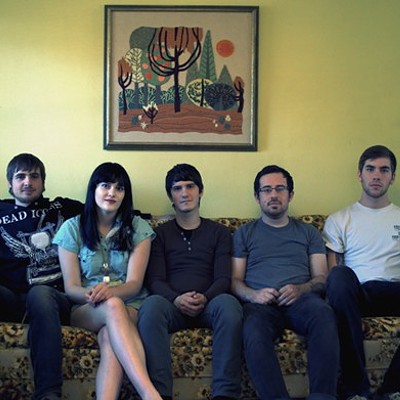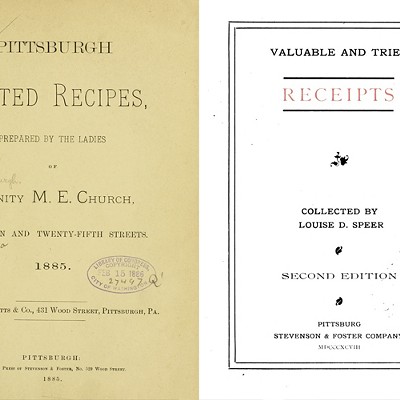Monday, April 9, 2012
Ravenstahl, Kraus announce initiative to address revelry in South Side, elsewhere
For the last three years, Bruce Kraus has called on Mayor Luke Ravenstahl to help address long-standing quality-of-life issues plaguing bar-saturated entertainment districts like the South Side.
Today, the mayor granted the city councilor's wish.
During a press conference this morning, Ravenstahl joined Kraus to announce a city partnership with Responsible Hospitality Institute, a nonprofit consultant group known for helping cities manage safe and vibrant hospitality districts.
RHI, working under a $100,000 contract with the city, will be tasked with conducting a nine-month study to examine the impact of Pittsburgh's nightlife in three neighborhoods: South Side, Downtown and Lawrenceville. Once the study is finished, the consultant group will craft the Pittsburgh Sociable City Plan, a blueprint detailing how the city can improve its nighttime economy.
"This assessment is a proactive effort to ensure that Pittsburgh's nighttime economy is operating effectively and efficiently," Ravenstahl announced. "We continue to be named America's most-livable city year after year, and if we want to continue to do that, it's going to take proactive approaches like the one we're taking today."
The concept of creating a comprehensive plan to help manage Pittsburgh's nightlife -- especially the South Side's legendary rowdiness -- was first introduced by Kraus back in 2008 after he attended a Responsible Hospitality conference. In 2009, Kraus hired an intern, Georgetown student Bryan Woll, to examine the South Side's challenges. Woll's 85-page report offered a variety of suggestions, including creating a team of community stakeholders, launching a dedicated police unit on weekend evenings, and developing a coordinated transportation plan to help ease parking headaches and cut down on drunk driving.
For three years, Kraus pushed for a similar plan here. But Kraus belongs to a council faction that has often been at odds with Ravenstahl, and the two have traded barbs over the issue. In 2010, after a weekend shooting on the South Side, Kraus accused the mayor of ignoring the problems caused by East Carson Street's booze-filled nightlife; mayoral spokesperson Joanna Doven retorted that "The personal attacks are counterproductive."
Skeptics may suspect that Ravenstahl's shift in favor of the program is prompted by his looming reelection bid next year. But whatever the political calculus Kraus sounded excited about what the partnership could mean for the city. "We've worked very hard to get here," he said. "We stand here united today with a common goal and a common purpose."
"This is really about being proactive," Kraus added. "It really is about ... managing on the front end and not draining public-safety resources on the back end."
Since 2003, RHI has worked with more than 50 cities in U.S. and Canada to analyze their nighttime economies and come up with strategies to improve them.
"What we're doing here in Pittsburgh is to bring the corrective knowledge that we've gained in [other] cities," including small college towns like Boulder, Co., and larger cities like Milwaukee and Chicago, said Jim Peters, president of RHI.
Peters said his team will begin their work by bringing together key community stakeholders -- bar and restaurant owners, neighborhood group representatives, city officials — to discuss specific issues in each of the three neighborhoods. "There are many stakeholders who have a vested interest in hospitality," he said. "We try to create a steering group."
In an interview, Kraus said the South Side was an obvious choice to be included among the three neighborhoods targeted early on in the initiative. "We haven't managed our success [as an entertainment district] well," he said. Downtown and Lawrenceville, meanwhile, are quickly becoming popular entertainment destinations and could benefit from a comprehensive plan.
But Kraus hopes to expand beyond those three neighborhoods soon. "We have to bring in Oakland," he said, citing the neighborhood's high density of college students.
Kraus said people shouldn't expect a one-size-fits-all approach. "Different districts will have different needs," he said. It's up to the community stakeholders to determine what they are.
"This is really about changing our mindset, culture and principles," said Kraus. "It's not a pipe dream. I've seen it work."
Tags: Slag Heap










